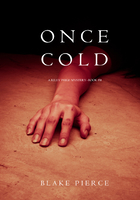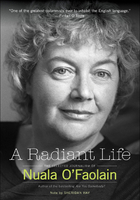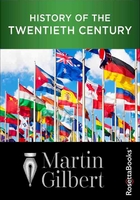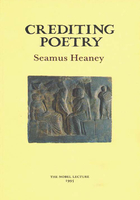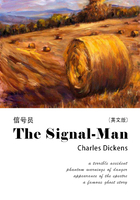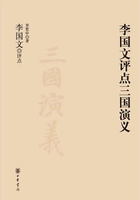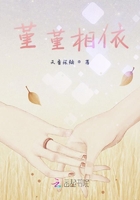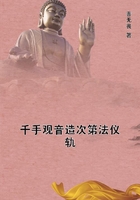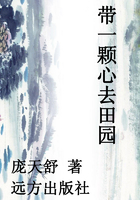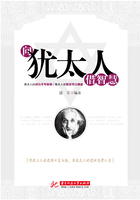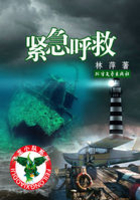INTRODUCTION
When I was in high school, I met Beatrice, a reclusive eighty-five-year-old who lived on Manhattan's Lower East Side. She and I started having breakfast every Wednesday. We'd drink coffee and sample the offerings from the artisanal donut shop downstairs from her apartment, located in a former bialy factory. I had moments where I hoped she'd let loose a font of profundity that would change my life and inspire some kind of Tuesdays with Morrie oeuvre, but she wasn't that kind of old lady: Her three favorite words were "I'm a bitch." Ornery as she was, I kept it up for a decade-they were amazing donuts.
I think I was a kind of enigma to Beatrice-a visitor from a world that had changed a great deal since she'd played an active part in it. The idea that I was able to work from home via computer after college was something she never could grasp. She was flummoxed by the way I carried a tiny phone, but often didn't pick it up when it rang. Whenever she left me a voicemail, she slowly spelled out her full name as if dictating a formal telegram.
There were many aspects of her life that I found inscrutable as well. At her bank, she knew the manager by name; I hadn't been past my branch's ATM vestibule since I'd opened an account. When I replaced her broken rotary phone with a touchtone one, she had to memorize where each number was located-she'd never seen a phone with buttons, and the digits were too small for her to read. And yet there were many banal tasks that she could do that I probably never will: light an oven's pilot light without flinching, make coffee in a percolator, mend a bra, or balance a checkbook by hand. In some ways, our lives were parallel: She too had been a single career woman living in Brooklyn, but back then, that meant something. When she opened an electrolysis office on Fourteenth Street in the 1940s, her brother had to sign the lease because the landlord wouldn't rent to a single woman. We both loved traveling, but I did it mostly by car and plane, while she'd largely used trains. She loved to face backward in the dining car, where she'd smoke cigarettes while flipping through Reader's Digest.
When Beatrice passed away at ninety-five, some of her belongings dribbled into my apartment. My seven-year-old niece was fascinated by Beatrice's rotary phone, her shoehorn, a small pile of carbon paper-all things she'd never seen before. She even marveled over a plain plastic flashlight that had a simple white switch and faint yellowy light. I teased her: "You've never seen a flashlight?" She got one off of a key chain on her backpack. "They're supposed to be like this," she said. The tiny thing lit up, three miniscule LED lights sending an impossibly bright bluish-white beam across the room.
The objects that most interested me were actually the ones I'd bought for Beatrice in the late 90s: The touchtone phone already looked clunky, with its thick antenna and built in cassette-tape answering machine. The address book that I'd helped her fill out, its pages now yellowing, reminded me that it had been years since I'd added a new name to my Rolodex. When I had started seeing her, I was someone who carried a Filofax at all times and had a pager. I got an e-mail account in the 11th grade, but I shared it with the sixty other kids in my class-if I recall correctly, the address was 00111.8347@compuserve.com.
So many of the changes that took place during the ten years that I knew Beatrice were rooted in technology, but most of them had affected me in ways far beyond anything that lived as pixels on a screen. In the interim years, I'd become someone who regularly used the Internet to share intimate details about my life on something that I first knew as a "b-log." It seems like I have a new cell phone every year, and, thanks to speed dial, I've never learned my boyfriend's number. I have little doubt that my iPod will need to be replaced before I finish this paragraph. And yet, it wasn't really so long ago that I knew every button and curve and scratch on my yellow and gray Sony Sports Walkman AM/FM cassette player (the one with the clip and rubber buttons), or that I kept a leather-bound diary, or could dial my friends with my eyes closed. When the phone rang, I said "Hello?" The question mark was there because I didn't know who was calling.
What happened to that person? And what will happen to all the Sony Sports being offered up as $40 "vintage" items on eBay? Perhaps I'll tell my children how I used to have to Rollerblade five blocks in the rain in order to purchase CDs. Or maybe I'll amaze them with stories about sending text messages and getting Netflix and driving in hybrid cars.
Of course, one expects an older generation to wax poetic about how they grew up in simpler times, but the world really was a less complicated place last year, last decade, last century. Computing hardware is the best example of this trend. In 1965, Intel's cofounder, Gordon Moore, predicted that the number of transistors that could be put on a chip would double every two years. The idea, which came to be known as Moore's Law, was right on the money. It's the principle that has brought us gadgets that are constantly increasing in ability as they shrink in size. But are smaller computers making us happier? Is the playlist I made for the gym last night really giving me that much more joy than the homemade mixtapes I used to listen to? It's hard to say, but I do think it's given me an increased awareness of the ephemeral nature of all the everyday things that are passing by faster than ever before. It's imbued me with a kind of odd nostalgia for right now.
Perhaps that's just the price to pay for living in a world that can't seem to shift out of fifth gear. In 1970, the futurist Alvin Toffler wrote Future Shock, a book in which he posited that the rate of change in the world was drastically accelerating, and that physical and psychological overload would likely occur. If progress is happening exponentially, the pace at which things become obsolete seems to be close to hitting terminal velocity. Today, we experience in one year the amount of change that it would've taken generations to experience a few hundred years ago. I have little doubt that the world Beatrice was born into was more similar to the one her great-grandparents lived in than my world was to hers.
"When we lived in an agrarian world as peasants, life was set by the seasons and things were slow. Terribly slow. You had the same plot of land your whole life. Nothing much happened within your lifetime," Mr. Toffler said when I was able to use the Web to track down his office number (something that would've been next to impossible before Google-hey, sometimes progress really is progress). "Today, people are running faster and harder and are having difficulty keeping up with the pace of life." Schools, he says, are an example of how hard it is to operate at the current pace of change. He argues that even the most forward-thinking institutions are doling out educations that won't be applicable to tomorrow's world. "We are essentially preparing kids for tasks they won't need and jobs that won't exist." In terms of schools teaching essential life skills, I agree with him. While some of the more practical things I learned in high school have proven to be quite useful-typing and driving for example-I learned nothing that prepared me to write e-mails or use Google or do the kind of telecommuting I do and have the discipline to make my own schedule. All those hours I spent practicing cursive writing or figuring out programming in BASIC or learning how to use card catalogs and microfiche… I don't regret learning those things, but they are skills that are even less useful than the stuff I knew wasn't going to be relevant to my life (ahem, calculus).
The question is: What happens to bits of knowledge that are no longer relevant? Some of it, I imagine, will be handed down, at least for another couple of centuries-I've seen academic journals with articles on, say, mid-eighteenth-century butter dishes, and there are still people out there who make chainmail suits. I like to think that one day someone who has yet to be born will while away years learning all there is to know about our era's pay phones or printed dictionaries or manual car windows. But there likely won't be: The more advances we make, the more slips away. In his 1993 book, Beginning Again, the biologist David Ehrenfeld uses the example of earthworms: At the time he was writing, European and Asian earthworms were displacing native ones in America and the ecologic consequences were potentially quite great. But Mr. Ehrenfeld found that there was only one single US scientist left who had studied earthworm taxonomy (Australia and England had none). With so many other exciting branches of science materializing and getting funding and attracting scholars, even the most basic knowledge about earthworms was being completely lost. There was a similar problem when a turret on the battleship Iowa blew up in 1989, he notes. The ship was from World War II, and both the materials and the technical knowledge necessary to repair it no longer existed. "Most of us probably imagine knowledge to be cumulative: Each advance is built on prior discoveries, block piled upon block in an ever-growing edifice," Mr. Ehrenfeld writes. "We don't think of the blocks underneath as crumbling away or, worse yet, simply vanishing."
This book is an attempt to take stock of things in our lives that are hanging on by threads: ideas, habits, and objects that are either obsolete or well on their way. It's easy to confuse obsolescence with things just going out of style, but I've done my best to distinguish between those two categories. Fads come and go, but something begins to seem obsolete when it is no longer in use, either because it's been supplanted by something that's perceived as categorically better or faster or stronger or easier, or because the purpose it served has exited stage right. It's not an exact science, but I would argue that A-frame houses, variety shows, and top hats may one day cycle back into style; typewriters, traveler's checks, and VCRs probably won't. I've largely tried not to use brand names, since those tend to be fungible; I have made a handful of exceptions for products, like the Polaroid and the Rolodex, which were such titans that calling them anything else would be reductive. Plenty of things I've covered are still very much a part of our lives, but may not be for long. Other subjects are pretty well in our past, but I've included them because they are still within the reach of our collective conscious.
There are many staunch defenders of sundry objects that are obsolete (or on the brink), and I was lucky enough to talk to some of them while researching the pieces in this collection. Scholars studying antique mercury thermometers in the year 3084 will owe a lot to Richard Porter, an eighty-year-old former science teacher who has spent twenty years manning his Thermometer Museum in Onset, Massachusetts, filled with more than a thousand kinds of thermometers. (Penn State is currently in the process of making an inventory of his collection, which it plans to absorb into a new weather museum.) Craig Poirier, an AM stereo enthusiast in Nova Scotia, gave me a complete education about the low-frequency stations he loves and has watched-or heard-die out: This year, the last of Halifax's AM stations turned off its signal. I spoke to Mike Smith of Mission Viejo, California, a former milkman who started leaving bottles on doorsteps when he was just eight years old and is now working to document the history of dairy delivery in Southern California. Then there was the inimitable Matt "Tapes" Steck, a valiant defender of analog media, despite the fact that he is only twenty. Look for him if you're ever in Douglasville, Pennsylvania-he's the guy walking around with one of his twenty-odd boom boxes lovingly balanced on his shoulder. I also had the privilege of talking to several twentieth-century luminaries-from Madeleine Albright to Larry Flynt-about how they've been affected by the acceleration of progress.
It would be impossible to write a fully comprehensive book on something as omnipresent as obsolescence, but my hope is that the following pages serve as a kind of time capsule that might help us to take stock of the world we're in right now through the lens of the one we're leaving behind. My goal has been neither to preach the sanctity of time gone by, nor to lament the steady hum of progress. We're all on this train together, and it only moves in one direction. Still, it's nice sometimes to sit backward and be reminded of where we've been.

